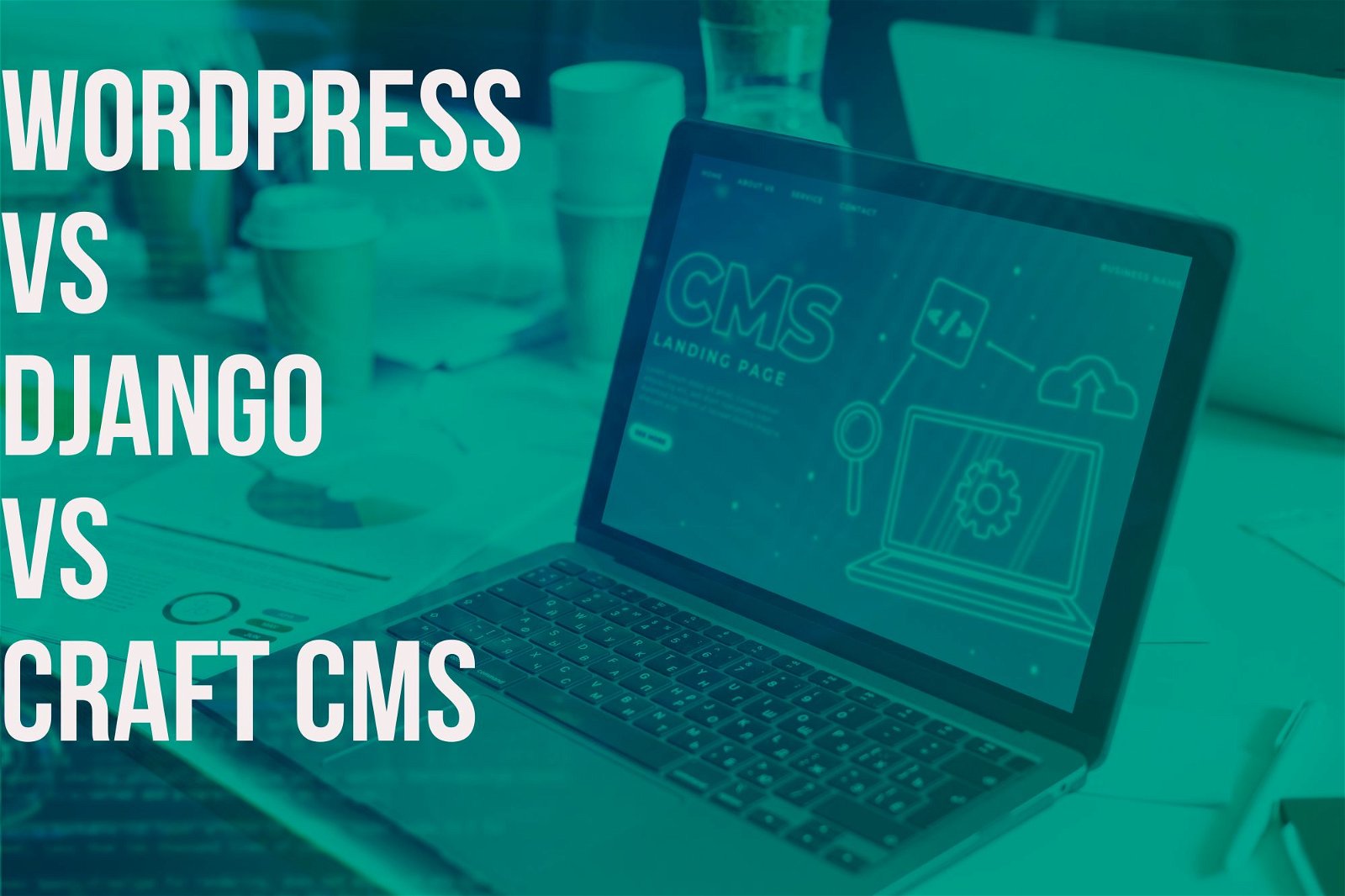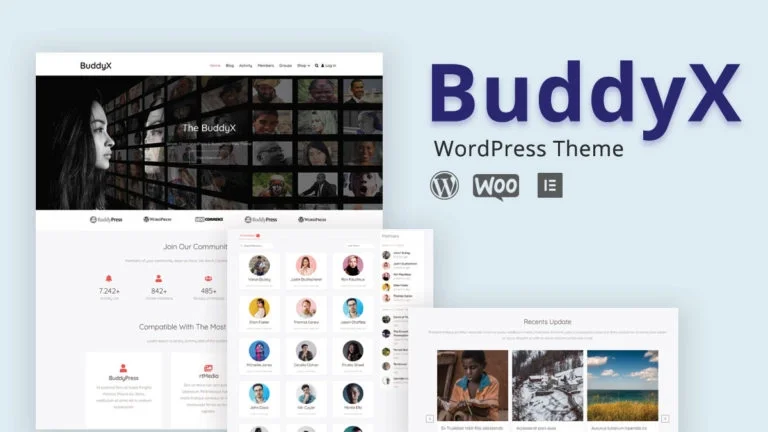Choosing the right platform for your web development project is crucial, and three popular options to consider are WordPress, Django, and Craft CMS. Each platform caters to different needs and preferences, so understanding their strengths and characteristics is essential in making an informed decision for your web development requirements.
What is WordPress?
WordPress is a widely used open-source content management system (CMS) that began as a blogging platform and has evolved into a versatile tool for creating and managing websites. Renowned for its user-friendly interface, WordPress allows individuals and businesses to build websites without extensive coding knowledge. It features a vast ecosystem of themes and plugins, offering customization options for various purposes such as blogging, e-commerce, and business sites. With a large and active community, WordPress continues to be one of the most popular choices for website development, providing a balance of accessibility and flexibility for users of diverse technical backgrounds.
What is Django?
Django is a high-level, open-source web framework written in Python, designed to facilitate the rapid development of robust and scalable web applications. Following the “don’t repeat yourself” (DRY) philosophy, Django encourages efficient, reusable code and adheres to the Model-View-Controller (MVC) architectural pattern. It comes with a comprehensive set of built-in features, including an ORM (Object-Relational Mapping) system for database interactions, an admin panel for content management, and support for URL routing. Django’s emphasis on simplicity, security, and scalability makes it a preferred choice for developers working on complex projects where a structured and organized approach is essential.
What is Craft CMS?
Craft CMS is a modern and flexible content management system designed to provide a superior content editing experience and powerful customization options. Developed by Pixel & Tonic, Craft CMS stands out for its emphasis on content-first approach and ease of use. It offers a clean and intuitive control panel for content creators, making organizing and managing content efficiently simple. Craft CMS is known for its flexibility in handling various content structures and the ability to create custom fields and content types. It strikes a balance between simplicity and customization, making it an attractive choice for developers who want more control over the design and functionality of their websites without sacrificing the user-friendliness crucial for content editors.
Comparison Table
| Feature | WordPress | Django | Craft CMS |
|---|---|---|---|
| Purpose | Versatile CMS, initially for blogging | Web framework for building applications | Content-first CMS with a focus on customization |
| Ease of Use | Extremely user-friendly, ideal for beginners | Requires some programming knowledge | Intuitive interface, designed for content editors |
| Flexibility | High, extensive plugin and theme ecosystem | High, customizable with a focus on scalability | High, customizable content structures, flexibility in design |
| Community Support | Large and active community | An active and growing community | Smaller but dedicated community |
| Development Approach | Theme and plugin customization, less coding | Structured MVC pattern, coding-intensive | Customization with coding, flexibility in content modeling |
| Content Management | Effective for various content types | Requires explicit content modeling, robust admin | Content-first approach, intuitive content management |
| Scalability | Good for small to medium-sized websites | Excellent, suitable for complex applications | Good, scalability achieved through custom development |
| Learning Curve | Low, accessible for non-developers | Moderate, suitable for developers with Python proficiency | Moderate, geared towards developers with a focus on content modeling |
| Security | Vulnerable to security issues with poorly maintained plugins | Strong emphasis on security best practices | Focus on security, regular updates, and patches |
| Cost | Open-source, with potential hosting and theme/plugin costs | Open-source, may require hosting and development costs | Requires a license fee, potential for plugin costs |
WordPress vs Django vs Craft CMS
WordPress, Django, and Craft CMS are all popular web development frameworks or content management systems (CMS), but they serve different purposes and have distinct characteristics.
Let’s compare them:
WordPress
Purpose: Primarily a blogging platform that has evolved into a versatile CMS for various types of websites.
Ease of Use: Known for its user-friendly interface, making it easy for non-developers to create and manage content.
Flexibility: Offers a wide range of plugins and themes for customization. It’s suitable for small to medium-sized websites and is widely used for blogging, e-commerce, and business sites.
Community: Large and active community with a plethora of resources and support.
Development Approach: Typically used for simpler websites; customization through themes and plugins rather than extensive coding.
Django
Purpose: A high-level Python web framework for building robust and scalable web applications.
Ease of Use: Requires some programming knowledge, but Django’s documentation is thorough, making it accessible to developers.
Flexibility: Provides a high level of customization and follows the “don’t repeat yourself” (DRY) philosophy. Suitable for complex, data-driven applications and websites.
Community: Active and growing community with a focus on best practices and security.
Development Approach: Well-suited for developers who prefer a more structured approach, following the MVC (Model-View-Controller) pattern.
Craft CMS
Purpose: Craft is a content-first CMS that focuses on providing a flexible and user-friendly content editing experience.
Ease of Use: Designed with content creators in mind, offering a clean and intuitive interface for managing content.
Flexibility: Known for its flexibility and ability to handle various content structures. Craft CMS is often chosen for projects where content modeling is crucial.
Community: Smaller than WordPress, but dedicated and supportive. Growing steadily.
Development Approach: Requires some development skills, making it suitable for developers who want flexibility without the complexity of larger frameworks.
Which One Is The best CMS Platform WordPress vs Django vs Craft CMS and Why?
The choice between WordPress, Django, and Craft CMS depends on your specific needs, project requirements, and the expertise of your team. There is no one-size-fits-all answer, as each platform has its strengths and is better suited for certain types of projects.
Here are some considerations to help you decide:
WordPress
Best For: Small to medium-sized websites, blogs, and content-centric sites. Ideal for users with limited technical expertise.
Strengths: Extensive plugin and theme ecosystem, user-friendly interface, and large community support.
Considerations: May require careful management of plugins for security; customization options may be limited for highly specialized applications.
Django
Best For: Complex, data-driven applications, scalable projects, and developers comfortable with Python.
Strengths: High customization, excellent scalability, following best coding practices, strong security features.
Considerations: Requires programming knowledge, and might have a steeper learning curve for beginners.
Craft CMS
Best For: Projects with a focus on content modeling, content-first approach, and customization.
Strengths: Intuitive content management, flexibility in content structures, suitable for developers and content editors.
Considerations: Smaller community compared to WordPress, may have fewer available plugins/extensions.
The best CMS platform depends on your specific project requirements, team skills, and long-term goals.
Final Thought
In choosing the ideal CMS platform among WordPress, Django, and Craft CMS, the decision hinges on the specific demands of your project and the skill set of your team. WordPress excels in user-friendliness and versatility, making it suitable for smaller to medium-sized websites. Django offers robustness and scalability, catering to developers with proficiency in Python and complex project requirements. Craft CMS prioritizes a content-first approach and intuitive customization, making it an excellent choice for projects with a focus on content modeling.
Interesting Reads:








